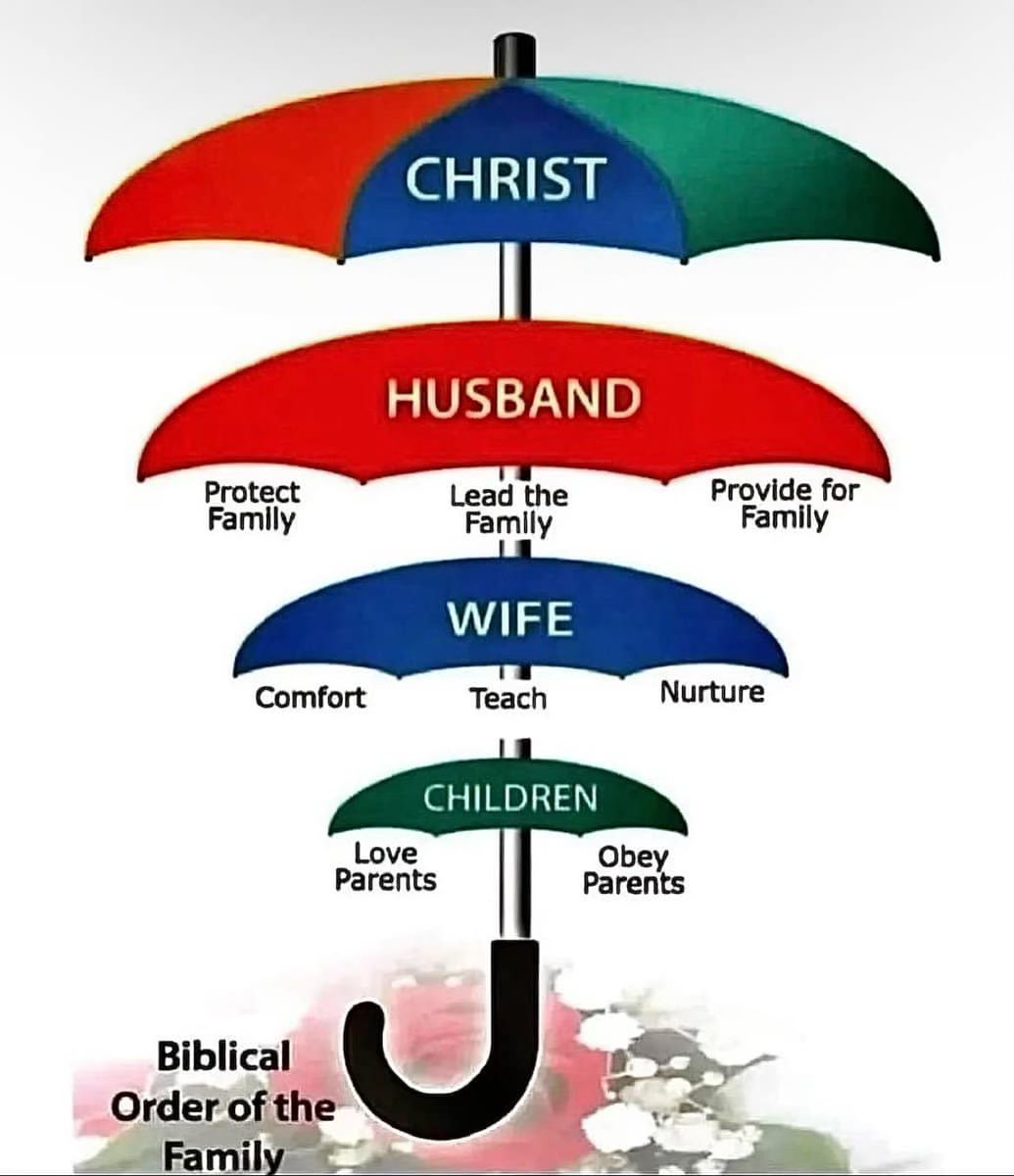Fellow pastor Michael Foster posted this illustration on Facebook with some pastoral concerns:
HIs note included this sentence:
One of the common errors that floats around circles who believe in patriarchy is the absolutizing of the husband/father’s authority.
On top of that, if these so-called "hyper patriarchs" who absolutize the husband/father’s authority taken the illustration the wrong way, it can lead to sin and despair in church and home.
(Or maybe the hyper patriarchs are taking the illustration as intended for all I know.)
Here are two seemingly opposite errors that could happen, but they go hand-in-hand.
ONE: A husband could take this illustration to mean that his wife and children cannot approach any other authorities without his permission.
This view reduces pastors to shepherds of only the heads of households instead of every sheep in the flock.
Of course, normally a wife would check in with her husband first before seeking pastoral care. That’s just being honest.
But if that principle is absolutized, then the wife and children actually have less protection than what God provides and give cover to a husband's and household's sins. If they have questions about the father’s authority, where can they turn? Wives and children, not just men, need the blessing of having shepherds, too.
TWO: A family could take this to mean that wives and children cannot be corrected by anyone except the husband/father.
So then, for example, if a wife is confronted about her gossip by a pastor or even another woman, then her husband will go all "white knight" to "protect" his wife from correction — and to protect his own reputation.
Amazingly, these two absolutizing errors can coexist in the same church, depending on the status of the household within the congregation.
True godly patriarchs recognize other authorities as “fathers” in his life and the lives of his family.




